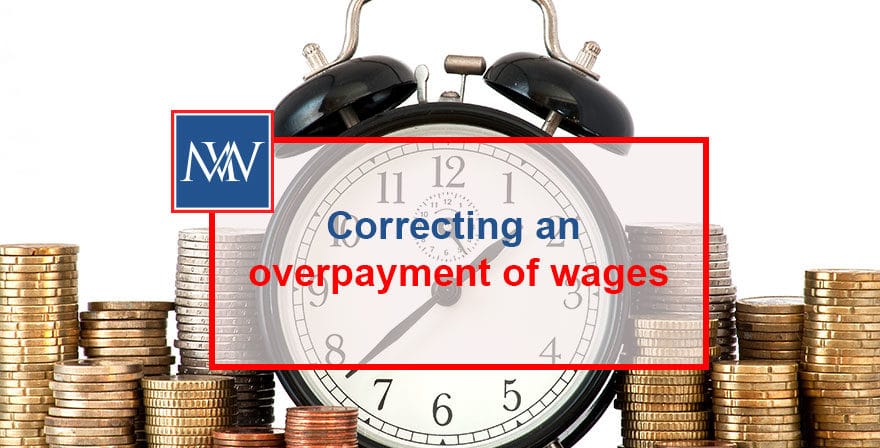
Correcting an overpayment of wages
Mistakes happen, and it can be very easy inadvertently to pay an employee too much when doing the wages. Perhaps a number was keyed in incorrectly or figures were transposed, or maybe commission was overstated or an employee was paid for more overime hours than they actually worked.
From an employment law perspective, an employer has the right to recover overpayments of wages from the employee. But what needs to be done to correct the mistake for tax and National Insurance purposes?
Adjustments during the tax year
It is relatively straightforward to correct an overpayment of wages where the mistake is discovered in the same tax year and the employee continues to be employed.
You will need to agree with the employee how the money is to be recovered. You may simply deduct it from future payments, or alternatively the employee may refund the overpayment to you. Where the overpayment is deducted from future payments, the correct approach is to deduct the net overpayment from net pay (i.e. after tax and National Insurance have been deducted).
The mistake should be corrected in the next Full Payment Submission (FPS) sent to HMRC – this should show the correct payments to date and the correct net tax to date. The effect of this is that the PAYE deducted from the overpayment can be set off by reducing the next monthly remittance sent to HMRC. The employer should keep a note of both the reason for the adjustment and the method used to recover the net pay from the employer.
Mistakes discovered after the end of the tax year
If the mistake is not discovered until after the end of the tax year, it will be necessary to submit an FPS showing the correct year to date figures as at 5 April at the end of the tax year in which the mistake occurred. For 2018/19 and earlier tax years, mistakes discovered after the end of the year can also be corrected using an Earlier Year Update (EYU); however, HMRC will not accepts EYUs for correcting 2019/20 mistakes post-year-end.
The employee should also be informed of the mistake and given a replacement P60, clearly marked ‘replacement’. The employer will also need to agree with the employee how the overpayment is to be recovered.
For more information, Book a Free Consultation
Need Accountancy Support?
For information on bespoke training, or if you have any other questions for Makesworth Accountant, please fill in your details below




















 150
150